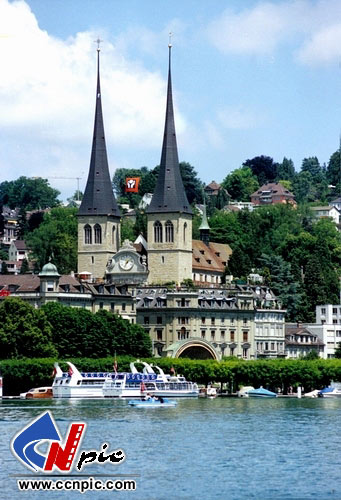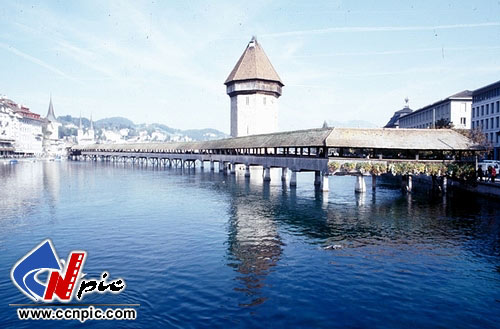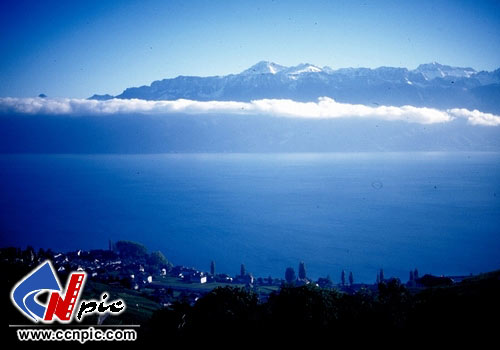Lucerne (German: Luzern) is the capital of the canton of the same name. It lies at the north western end of Lake Lucerne, where the river Reuss flows out of the lake. Lucerne is the economic and cultural centre of central Switzerland.
The economy of Lucerne is based on tourism and commerce. It also offers services in such areas as transport, health and consulting. There are over four and a half jobs in the service sector for every one job in industry or agriculture.

ID:001-4235 Lucerne Switzerland scenery Picture Sources:ccnpic.com
Lucerne has direct train links with most major Swiss cities and to Milan. It is served not only by the Swiss Federal Railways, but also by the private Zentralbahn.
The city has a small university, which is to be expanded in the next few years. Its theology department enjoys a particularly strong reputation.

ID:004-3234 Lucerne, Switzerland, the church bridge Picture Sources:ccnpic.com
History
The city was once a dependency of the Alsatian monastery at Murbach, but gradually gained autonomy. The year 1178 marked a turning point in its relations with the monastery, and is regarded as the date of its foundation as a city.

ID:004-004-3232 Lucerne, Switzerland Picture Sources:ccnpic.com
After the opening up of the Gotthard pass in the early 13th century it grew wealthy as an important staging post on the route between Italy and northern Europe. The city joined the young Swiss Confederation in 1332. (CCNPIC Ella)
(Article Resource: www.ccnpic.com)